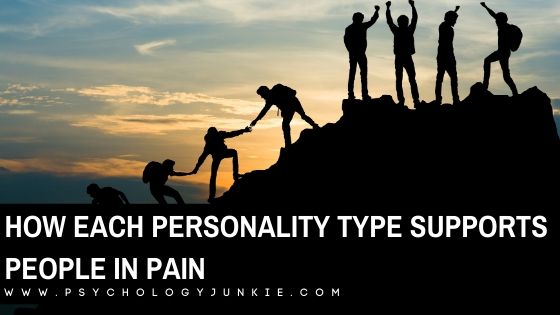A Look at the INFP Leader
Estimated reading time: 8 minutes
Anyone looking to have your life changed?

A few minutes around these cats will do it for you.
Although, I’m sure a haircut will suffice if you can’t find one.
They can be like a Pokémon in high grass sometimes.
From first glance, INFP leaders and ISFJ leaders might look a bit similar. They both care about their workers and tend to prioritize their feelings over general, depersonalized efficiency. However, where ISFJs are communal and familial in their interactions, INFPs are near always searching for depth of character. INFPs wish to inspire growth in their workers and to do this, they will truly get to know those in their care and try to provide them with opportunities unique to them.
INFP leader: What is your passion? What drives you?
Benny: I want to positively affect people. I want to do something that actively helps others.
INFP leader: I have just the job for you!
Benny: Really??
INFP leader: Certainly! Here’s a toilet brush.
Benny: Wut.
INFPs make interesting leaders as they might feel like they never really belong at an organization. It is as though they cannot be one hundred percent true to themselves if their actions and decisions must be downplayed in favor of the bounds of some organized rule or procedure. It might be too much of a strain on their Introverted Feeling to act in accordance with some list of rules that don’t coincide with their own. Thus, INFP leaders likely don’t roam the public as much as other types. However, when they are in leadership roles, it usually means they wholeheartedly want to be there. Start-ups with a humanistic lens would be an appealing endeavor to be a part of if the values of the organization matched up with the INFP’s own.
Aww.
Look at them.
Matching colors.
Time to look at their patterns.
They Wield Their Imagination
We’re starting off with our guns blazing.
The INFP way.
Most people can get behind concepts such as treating others with respect or making the world a better place. Sure, promoting kindness, lessening the amount of garbage dumps, and having free access to grilled shrimp would be great, but many of us worry whether taking things to their utopia is doable. Is the ideal even possible?
Don’t you dare cry on me.
Keep that hope kindling.
INFPs seem to have a unique relationship to possibility, which flows into their leadership style. To an INFP leader, possibility is probability. If you can dream something, you can make something happen. Imagination leads to doing. Maybe things won’t be perfect, but if you’re striding towards something, real change will happen.
A good example might be if we consider the INFP who grows up believing that children need to be nurtured in order to become kind adults. Thus, if all children had good families to grow up in, the world would be full of better people as a result. On the surface, this may seem idealistic and not always doable. However, the INFP will take this mission to heart and work to make this a reality for as many children as they can. In order to fulfill this vision, the INFP may, for example, take on a leadership position running an organization that seeks to place children into loving families. Maybe the organization sells children’s art in order to raise money for providing closer bonds between orphanages and potential families.
Very, undyingly Fi.
We love it.
When it comes to leading others, INFPs keep their worldview and the imagination that comes from it firmly in place. They encourage those around them to pursue their imagination. They promote creative thinking and problem-solving in order to reach some higher ideal.
Who wouldn’t be encouraged by such a goal?
They Care About Personal Development
Much like ENFP leaders, INFP leaders respect empathy and individuality. INFPs spend their entire lives seeking out different parts of themselves and know intimately how important it is for their workers to do the same. People are not merely workers. Workers are people with a range of needs and ideals to be considered.
Gotta love that.
An INFP leader might, for example, feel unnerved if they learn one of their workers doesn’t feel like they are on their appropriate “life path” because they work for the INFP’s organization. INFPs want others to be true to themselves and their needs, just as they personally are. If INFPs know their workers are living otherwise, they will have a hard time feeling like they personally are doing the right thing.
How can you adequately lead someone who doesn’t want to be led in your direction?
INFP leaders put a lot of stock on individual growth. They want others to reach their full potential. Introverted Feeling paired with Extroverted Intuition is quite special in that sense. What a person desires at their core matters greatly, even in a career sense.

They Lead with Consideration
INFP leaders hold great care for those surrounding them. It’s not always possible to develop good relationships with everyone, but INFPs desire that. They want strong connections and to learn through time the ways in which intentions change and morph.
Ooo.
Fancy.
Unlike ESFJ leaders, INFPs might not work to create a familial setting, but they will work to treat each individual on an appropriate basis. As in, they will try to create an open environment where multiple thoughts can be taken in and observed without fear. Sure, INFPs might like the cozy vibes that xSFJs cling to, but they don’t need their workplace to have a particular atmosphere so long as they believe in what they are doing.
Y’all intense INFPs.
I’m keeping my cozy chair.
INFPs likely hope that their employees have similar goals, missions, or even underlying hopes as they do. To share values with an INFP is to share a similar driving force. It’s powerful and pivotal to partake in an underlying outlook that applies to everything.
They Dislike Confrontation
INFP leaders don’t like having to push their weight around. It’s actually fairly uncomfortable for them to use their rank in a hierarchy in order for people to listen to them. These leaders want their workers to follow through without having to get on their case. However, when someone ultimately doesn’t listen, it can prove very taxing for them.
Time for a nightmare scenario.
Yay.
Let’s say an INFP leader has had several complaints from the office in regards to one particular employee. Larry keeps heating his dang tuna wraps up in the microwave. It’s not only off-putting to his coworkers because of the fishy smell it brings to the lounge, but because his coworker Cassandra is actually allergic to fish. If it’s in the air, she’ll react.
Now the INFP has to figure out how to navigate the issue all the while knowing that a person should be able to eat what they want and yet they shouldn’t be endangering others while doing it. The INFP will likely have quite a bit of anxiety approaching this situation. There are competing needs on both sides. However, the endangerment of Cassandra will take precedence for the INFP leader and they will approach Larry.
The INFP will give Larry several suggestions as to how he can help with Cassandra’s issue. Larry could bring something else? Or heat up his food in a neighboring department? But Larry refuses, stating it’s his right to bring what he wants. The INFP leader will acknowledge that, but this sort of resistance will still irritate the INFP to no end: someone is in danger and another person isn’t taking it seriously. The INFP may have to bring in someone from human resources to help defuse Larry and keep their employees out of harm’s way.
Safety first, kids!
INFP leaders will do whatever they need to ultimately, but it may not be comfortable or natural. Human issues that are so clear to the INFP may not be so clear to others. Knowing that, it would be helpful for INFPs to keep a stronger force around them so that when these confrontations occur, they can have some “back-up” to the sort of stubbornness that can negatively affect others.
Time to hire a bouncer, INFPs.
What Are Your Thoughts?
Do you have any experiences or insights to share? Let us know in the comments!
Find out more about your personality type in our eBooks, Discovering You: Unlocking the Power of Personality Type, and The INFP – Understanding the Dreamer. You can also connect with Jami via Facebook, YouTube, or Twitter!
Other Articles You Might Enjoy:
The Flirting Style of the INFP Personality Type
What it Means to be an INFP Personality Type
7 Ways That INFPs Make an Impact
About the Author:

Jami Cannon is an MBTI® enthusiast who hopes to shed more light on the SJ experience. She holds a very stereotypical degree in History (MA) and loves to learn all she can about the people around her.
.
Subscribe to Our Newsletter

Want to discover more about personality type? Get the inside scoop with Susan Storm on all things typological, along with special subscriber freebies, and discounts on new eBooks and courses! Join our newsletter today!











Yes correct to a T!!!
I need to hire a bouncer. Asap
I have been waiting for this article for so long love you Jami your style of writing is awesome lots of love
I’m an INFP. I totally resonate with all this. I would absolutely give Cassandra precedence over Larry to an extent. (I have an allergy to perfumes that can cause problems for me in the workplace. I realize they have a right to wear it, but I also have a right to breathe). Before confronting Larry with the issue I would put my INTJ hat on and look at both employees previous records of performance and determine their potential in my company. If Cassandra has only been there a few year and her resume indicates a pattern of job hopping every few years, but Larry has longevity and a is a good worker. I’m afraid Larry will continue to stink up the lunch room with his tuna wraps for many years to come. However, if all things are equal, and Larry gives me attitude, he will be finding another office to eat his tuna wraps in. Sorry Larry.
Loved this!! Thank you for posting!
I am an INFP… and I don’t think there can be an INFP leader, if “leader” means anything but leader of their own existence.
When we have gotten to knowing and accepting our being enough, we wouldn’t even want to be appointed leaders, because, apart from its improbability (and the improbability it would last, or work, but very briefly), it would prove annoying to ourselves, taking the time to live our life away from us.
I disagree with the concept that INFPs can’t be leaders. I am an INFP and I found the leader role very dear to my heart and an excellent way to make change. I can respect that this may not be the case to you but it’s not the case with all of us. In typology we must be careful to put the rest of our type in a box due to our own individual differences! That’s all! 🙂
I have to say I agree with Michele! I’m an INFP and the last thing I would want is to be the leader of something. It does make me sad though, because I agree with this author about everything they posted and I thinin in theory we would make wonderful, caring employers, but just getting around the asserting ourselves and for others to respect and take us seriously, that would be the most difficult part…
I am an INFP as well, although leadership position is not my priority at all, I still believe that the description above is very much possible!
My husband ISFJ and I (an ISFP) are leading a mission team in Thailand. We recently got a new trainee who is an ENTJ, and without intending to do so, he naturally starts taking over our team meetings and correcting us for our inefficiency, etc. I know we are not the natural leadership types, but we have years and years of experience in our field and have developed very fruitful relationships with the Thai people we work with. If I had not studied personality types, I would have not known how to handle this guy (I still don’t). It is very stressful for me to be in a situation where I have to be confrontational, bossy or pushy. But when it is our responsibility, we do what is very uncomfortable. I found myself getting so hurt by some of his criticisms, I think sometimes I obsess on it too much and keep wondering why I can’t just shake it off. When it comes to serving people, we CAN make good leaders, even though we are not the “natural leadership” type.
As an INFP leader, I would sit down with Larry and have him sign a document that outlines his responsibility if his lunch sends the coworker into an allergic reaction. The document would inform him of her condition and then state that he will be held personally responsible for any costs incurred by her medical care that is due to his fishy behavior. He would get a copy of it, and one would go into the personnel file. Then I would invite him to brainstorm ideas that would work for all.
Also, as an INFP, I lead collaboratively. I like to have everyone’s input and to keep communication open. I am not scary, punitive, or vindictive, and want everyone to feel safe and that they can share and that every problem has a solution. I like everyone on the team to feel valued and that their contributions are welcome.